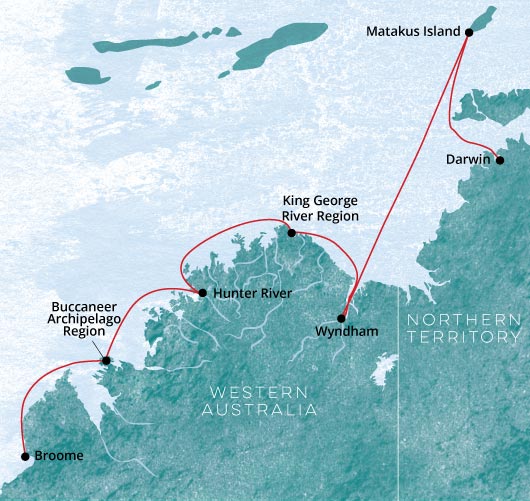
Broome (Kimberley) to Darwin
STYLE: LUXURY
There are many beautiful places on Earth, but close to the top of the list is The Kimberley. Three times the size of England, home to 40,000 people (per kilometre less than anywhere else on Earth), this vast area is home to a huge variety of natural interest. Let our team of experts educate you on the untamed wildlife, complex geology and Aboriginal rock art, so that you can uncover the secrets of this spectacular region. Voyage includes either a scenic flight over the magnificent Bungle Bungle Range or a cruise up the scenic, winding Ord River by local boat.
ITINERARY SUMMARY
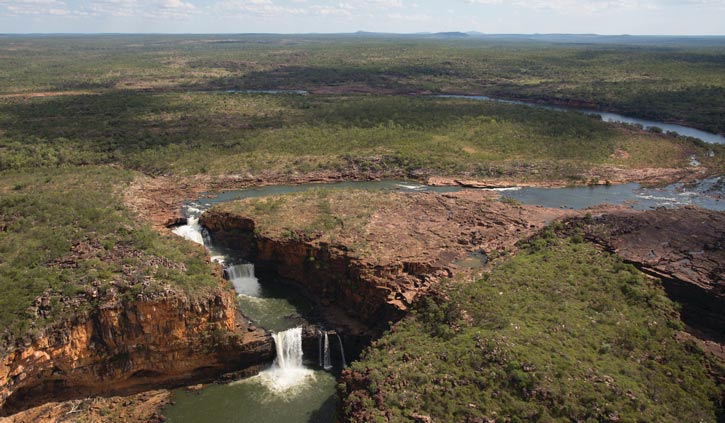
DAY 1 DEPART BROOME
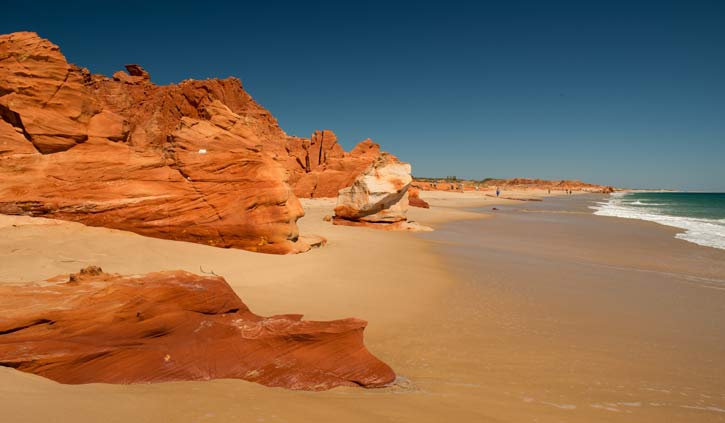
Roughly 15,000 people live year-round in Broome perched on the edge of the Kimberley region of Western Australia. The population swells to over 45,000 during the tourist season as people from all over the world are drawn to the natural splendors of the Dampier Peninsula. Broome is surrounded by lush green mangroves and mudflats along Roebuck Bay, but the interior is dry and rugged like much of the Kimberley coast. The town of Broome started up around a nascent pearling industry that attracted Japanese, Chinese, Malay and Aboriginal divers to the area in an interesting mix of cultures. Chinatown is still the centre of town, but nowadays the pearls are produced in modern aquaculture facilities. The Silver Explorer will depart at 4:30pm.
DAYS 2 & 3 BUCCANEER ARCHIPELAGO
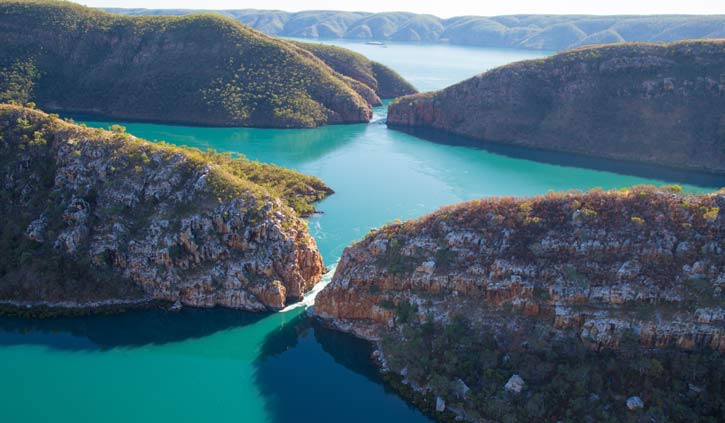
Roughly 800 islands of the Buccaneer Archipelago surround and shelter the impressive spread of Yampi Sound (from the aboriginal word for water, “Yampee”). The area was named in 1821 by Captain Phillip Parker King, in commemoration of William Dampier’s visit in 1688. Pearlers began visiting the area in the late 1800s, and more recently mining operators established open-cut mines on Koolan Island on the east side of the Sound. Some of the richest iron ore in the world is extracted here to this day. The coastline of Yampi shows rock layers wildly twisted and contorted into great folds. White-bellied Sea Eagles, Brahminy Kites, Ospreys, Common Sandpipers and Eastern Reef Egrets inhabit the archipelago and the area is rich in fish life, which in turn is an attraction for bottlenose dolphins that come here to feed. Yampi Sound is also occassionaly a calving ground for humpback whales and mothers and calves can sometimes be spotted in the relatively shallow turquoise waters.
DAYS 4 & 5 HUNTER RIVER REGION
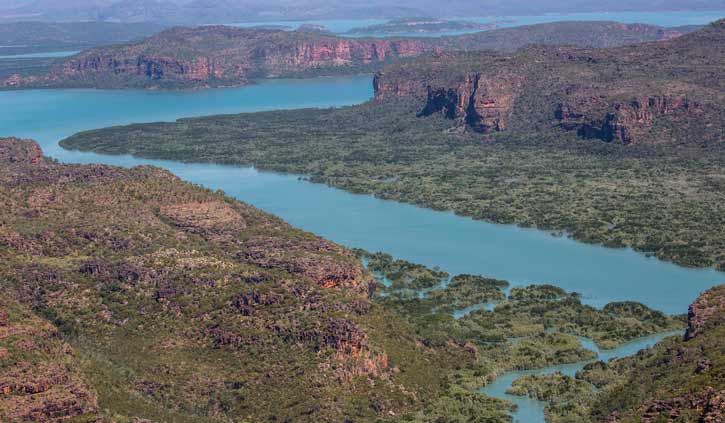
The Hunter River is home to an immense mangrove system surrounded by soaring red sandstone cliffs. Narrow mangrove channels shelter numerous bird species, mudskippers, fiddler crabs and the infamous saltwater crocodile; the most aggressive crocodile species known to man. Naturalist Island at the mouth of the river has a stunning stretch of sandy beach that makes a perfect landing site for small helicopters that can pick up visitors wishing to explore some of the Kimberley’s vast interior. The highlight inland is the famous Mitchell Falls where four tiers of waterfalls plunge into deep pools that flow out into the mighty Mitchell River. The headwaters of the falls are cool and a dip in the fresh water is a welcome reprieve from the heat of the heartland.
DAY 6 KING GEORGE RIVER
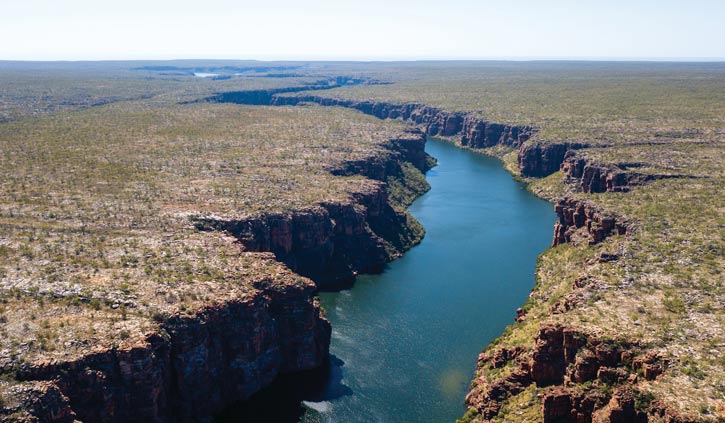
The King George Falls is one of the Kimberley’s most magnificent natural wonders. At 80 metres, the thundering spectacle of twin cascades are among the highest in Australia. The river weaves through an amazing landscape of near vertical red rock formations and a parade of wildlife — carnivorous saltwater crocodiles and amazing birdlife, including giant raptors and the Brahminy Kite.
DAY 7 WYNDHAM
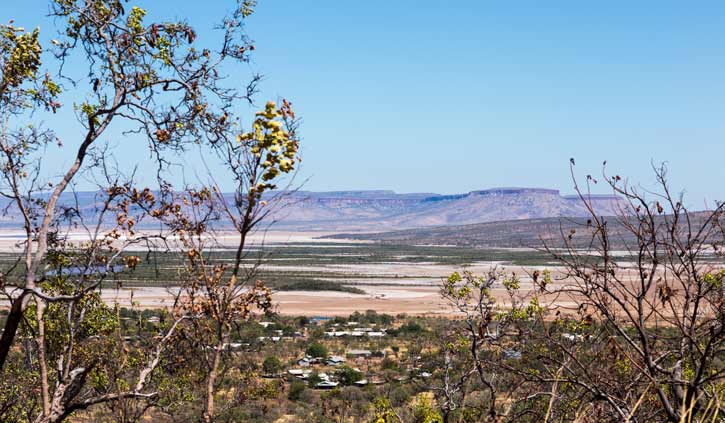
Wyndham is a small settlement with the spirit of a Kimberley outback township. It was established in 1886 with the Halls Creek gold rush and sits on the Cambridge Gulf where several rivers converge. Today Wyndham has a population of roughly 900 people and operates largely as a port exporting cattle, servicing the mining industry and hosting a few small ships. For these vessels Wyndham is a gateway to the breathtaking Bungle Bungle mountain range and the nearby Ord River. The Bungle Bungle Mountains in Purnululu National Park are now a World Heritage Site. In excess of 350 million years have shaped geological formations of giant orange and black striped domes rising out of the ground into a landscape unlike any other. Known to the local Aboriginal people for thousands of years, the Bungles were only discovered by the outside world in the mid-1980s. Conversely, cruising the peaceful and tree-lined Ord River is a chance to look for freshwater crocodiles, fruit bats, short-eared rock wallabies and a variety of birds, including Mangrove Herons and Mangrove Gerygones. Please note: All destinations on voyages in the Kimberley region, and the order in which they are visited, are subject to tidal variations and weather conditions.
DAY 8 AT SEA
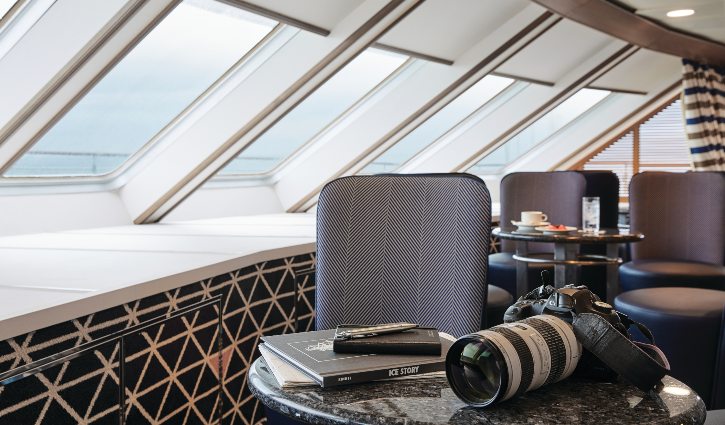
Days at sea are the perfect opportunity to relax, unwind and catch up with what you’ve been meaning to do. So whether that is going to the gym, visiting the spa, whale watching, catching up on your reading or simply topping up your tan, these blue sea days are the perfect balance to busy days spent exploring shore side.
DAY 9 MATAKUS ISLAND (INDONESIA)
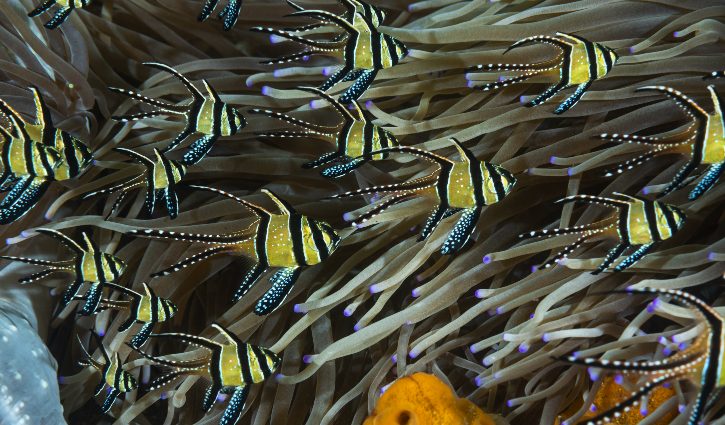
Matakus is a small island and part of the Tanimbar archipelago. Matakus is just over three kilometres in length and less than a two kilometres across. Despite its small size, its proximity to the regional capital city of Saumlaki just to the north ensures that the island is inhabited. The island is surrounded by fine, white-sand beaches and is a marine paradise, with fields of staghorn coral and schools of cardinalfish visible in its crystal clear waters.
DAY 10 AT SEA
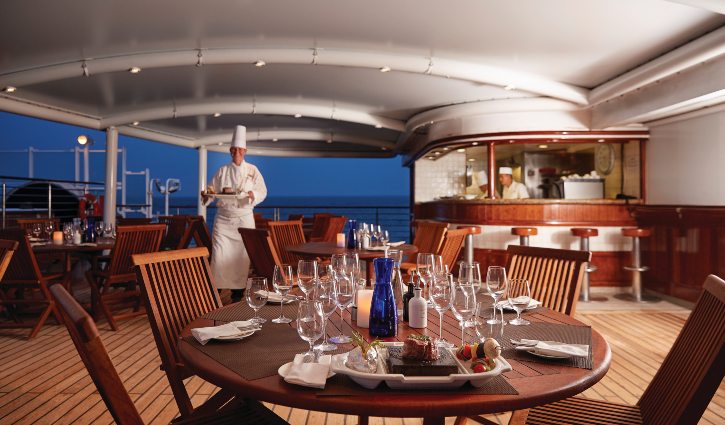
Days at sea are the perfect opportunity to relax, unwind and catch up with what you’ve been meaning to do. So whether that is going to the gym, visiting the spa, whale watching, catching up on your reading or simply topping up your tan, these blue sea days are the perfect balance to busy days spent exploring shore side.
DAY 11 ARRIVE IN DARWIN
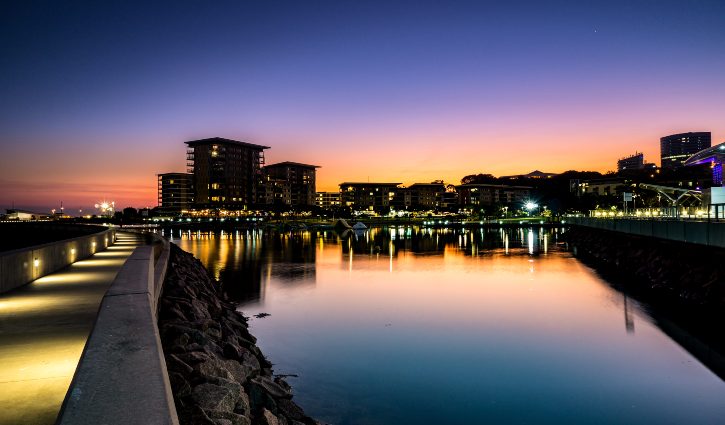
Australia’s capital of the north is a uniquely tropical city, and a historically isolated outpost of this vast, diverse country. Reaching up towards the equator, a full 2,000 miles from Sydney and Melbourne, the city was named in honour of Charles Darwin by the British settlers who established a frontier outpost here. With a unique history, beautiful islands nearby, and a palette of sizzling Pacific flavours, colourful Darwin is an enchanting and exotic Australian destination. Crocodiles patrol the jungled waterways and tropical rainforests around Australia’s gateway to the Top End. Explore via airboat to look down on the veiny waterways of the mist-laced Kakadu National Park. The sounds of chattering birdlife and the gentle splash of fountains and waterfalls will fill your ears in George Brown Darwin Botanic Gardens. Soak it all in, before kicking back and relaxing with a picnic and a crackling barbecue. The sunshine and famous tropical pink sunsets mean many visitors naturally gravitate to the city’s soft sands to relax at spots like pretty Mindil Beach, as evening approaches. The adjoining market is filled with souvenirs and crafts stands and is the perfect great place to enjoy some fiery Asian flavours. Stroll the stalls, grab some food, and crack open an ice-frosted beer as the sunset show begins. It may be remote, but Darwin found itself on the front line during the Pacific War, as the Japanese air force unloaded their bombs onto the city in 1942. This relaxed unassuming city has a deeply resilient backbone, however, and you can explore the museums to learn more of the war’s impact on Darwin, as well as the devastating effects of one of Australia’s worst natural disasters, Cyclone Tracy in 1973.


